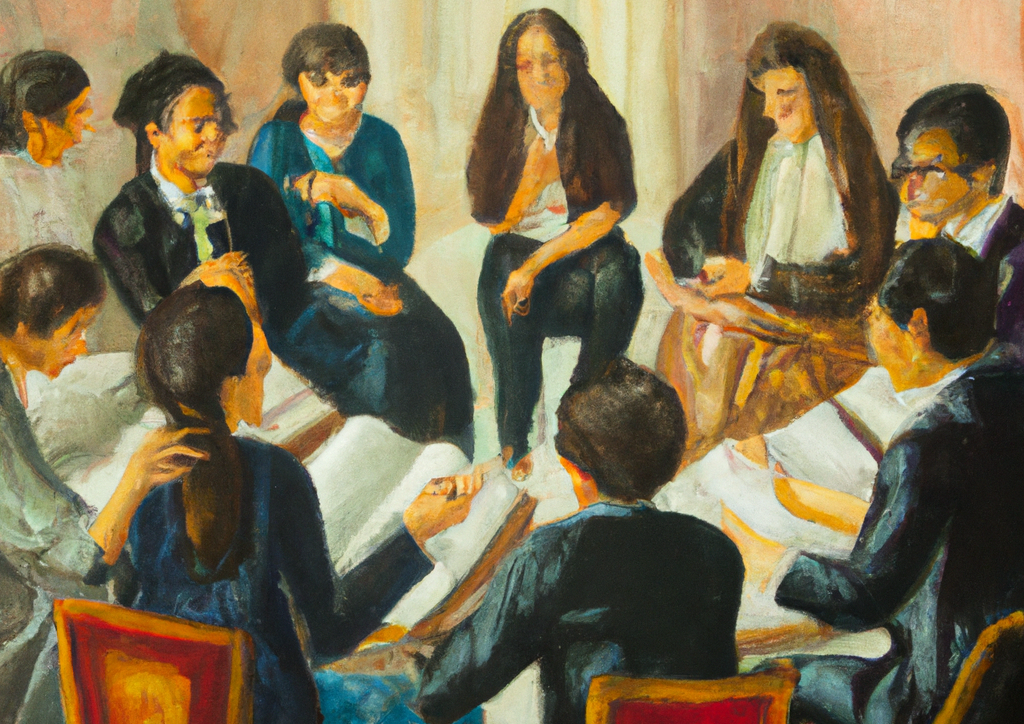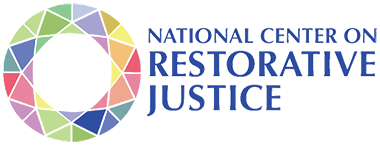Restorative Justice in Legal Education
Home / Restorative Justice in Legal Education
The existing criminal legal system replenishes itself regularly with newly minted graduates and other professionals educated and trained in an adversarial model. This classical education teaches criminal justice leaders to use the law, rules, and procedures to maximize the strength of their own position, while highlighting and exploiting the weaknesses of the adversary. Educating undergraduate, graduate, and law students in the adversarial model perpetuates the use of the adversarial model.
Bringing restorative justice to the law school context interrupts this cycle and equips the next generation of criminal justice professionals to bring the restorative justice approach to bear in reforming the current system.
Teaching Restorative Justice: A Curriculum for Legal Educators
The National Center on Restorative Justice has developed a curriculum to provide educators with resources and activities to bring restorative justice education to their institutions, whether as a stand-alone class or integrated into existing courses. The curriculum is organized into modules on different topics, each with a wide range of suggested resources and teaching methods. Each module focuses on a different foundational area of restorative justice education. The modules are designed to build on each other, but can also be used independently, depending on the specific needs of the individual educator.
Module 1: Key Players in Restorative Justice
Module 2: Restorative Practices in Clinical Education
Restorative Justice in Legal Education Virtual Symposium for Law Students
This one-day, virtual gathering aimed to explore the applicability of restorative justice content and practices in the law school context and what restorative approaches have to offer the field of legal education. This was an opportunity to learn more about restorative justice and to explore, as a community of law students, how restorative justice might be brought into law school classrooms and communities.
Panelists
At NYLS, Emma Theis participated as a Junior Editor of the Family Law Quarterly journal, Fashion Co-chair of MEFLA, and Treasurer of the Restorative Justice Law School Association. During her time at the Aids Center of Queens County, she served HIV-positive indigent clients and at Family Legal Care she provided legal advice to pro se litigants in Family Court. As a Restorative Justice Extern at the NYC Law Department Family Court Division, she assisted in facilitating appropriate services and interventions for court-involved youth and their families and will continue with the Law Department as Assistant Corporation Counsel after the bar.
Ana Puente Flores is from Mexico City. Involved in the migrant justice movement, both in the courts and at school, she led initiatives in the Dream Team at the City College of New York. As Institutional Development and Research Director at the Politics of Sexual Violence Initiative (PSVI), she researched femicide in Mexico City, as well as gender violence in post-war contexts in Southeast Asia. She helped build and found the program Beyond Identity: A Political Platform for Scholar-Activists. In the summer of 2018–during the beginning of the family separation policy–she was a legal intern at the Dilley Pro Bono Project. She is currently a 2L at CUNY School of Law. With a fellowship from the Sorensen Center for International Peace and Justice, she worked for the organization Lakota Peoples Law Project and helped write an amicus brief in support of ICWA for the case Brackeen v. Haaland in the Supreme Court. This summer she is a Law Clerk for Justice Cheryl Fairbanks who is Tlingit Tsimshian, and Chief Justice Robert Yazzie from the Navajo Nation. She has experience working with detained populations and imparts workshops with immigrant youth to expand the narratives outside of the ones that get make it to court. In her organizing work, she seeks to open up a path for alternative spaces of care, mutual aid, collective storytelling, and cultural revival. Her political energy is geared toward migrant and indigenous folks fighting and thriving for the land, waters, and seeds. Through this work, she seeks to reweave the human dynamics towards sustainability, memory, collectivity, and balance.
Jordan Stark is a recent graduate of Benjamin N. Cardozo School of Law, receiving his J.D. with a Certificate in Dispute Resolution. Jordan’s passion for dispute resolution and Restorative Justice came from his experience as a volunteer combat soldier in the Israeli Army. His experience left him with ambitions to pursue peace-building. While searching for paths to fulfill those aspirations, he studied moral and political philosophy, with a minor in education and empowerment, at the University of Michigan. There, his campus involvement included working to bridge divides between Jewish and Palestinian groups and facilitating interfaith dialogue. At Cardozo Law School, Jordan got his first taste of peace-building work as a mediator in Cardozo’s Mediation Clinic, helping New Yorkers resolve disputes in Small Claims Court and the Equal Employment and Opportunity Commission. Jordan believes in the value of growing RJ in law schools to evolve the legal profession and proliferate conflict resolution through RJ.
Rev. Grace Woodward works at the intersection of faith and criminal legal system reform. An Arlington native, Grace is currently working in the Arlington Commonwealth Attorney’s office integrating restorative justice practices into the county’s court system. She is a graduate of Davidson College and Yale Divinity School, and is a part-time J.D. student at George Mason. Before starting law school, she served in both prison and hospital chaplaincy settings. Grace believes strongly in the power of storytelling and is an outspoken advocate for criminal-legal system reform. Grace is trained in community-building restorative circle keeping.
Jennifer Grubman is a rising 2L at the Benjamin N. Cardozo School of Law and a summer Boskey Fellow with the Cardozo Law Institute in Holocaust and Human Rights. After graduating from law school, she hopes to work in the domestic and international human rights field.
Emilie Winter is a rising 2L who is transferring from VLGS to Brooklyn Law School. At VLGS, she was the secretary for the Student Bar Association and a language access specialist at Vermont Immigrant Assistance. Last year, she interned with the Vermont Attorney General’s Office doing court diversion and legislative work. One of Emilie’s greatest joys is helping Vermonters expunge their criminal records through the AG’s free expungement clinics. Emilie also volunteers with Montpelier’s Community Justice Center, engaging in restorative processes alongside previously incarcerated individuals. Prior to law school, Emilie worked in education for several years and conducted mutual aid efforts across Brooklyn, NY. Emilie double majored in Psychology and Geography at DePaul University, and graduated summa cum laude in 2016. Emilie is passionate about integrating restorative justice practices into the criminal legal system and creating a more inclusive definition of public safety.
Aishaah Reed Foster is an associate at Moore & Van Allen, LLC in Charlotte, N.C. A graduate of the University of Richmond, School of Law, she was awarded the Charles T. Norman award for Outstanding Graduating Student and the Law Faculty Award in Labor and Employment Law. Aishaah focuses her practice on financial regulatory advice and response, internal investigations and conducting civil rights and racial equity audits. Aishaah is a firm advocate for all and volunteers her time on the DEI committee for the Mecklenburg County Bar, serves as a co-chair for the Charlotte Black Jewish Alliance, and volunteers at Safe Alliance (a safe haven for survivors of domestic violence and sexual assault).
Tayla Fauntleroy is a Newburgh, New York native by way of Harlem with an affinity to transformative healing. Focusing on the liberation of Black souls in America, Tayla’s personal and professional endeavors each center restorative practices as a means of uplifting marginalized voices, empowering youth, and maintaining sustainable mental health and spiritual wellness practices. For Tayla, aiming to become a guardian in these areas has looked like teaching social justice research and community organizing practices to middle school students; completing her Master of Arts in Restorative Justice with an emphasis on integrative practices in early childhood settings; and studying the dynamic ways in which trauma & adversity impact individual and structural developments amongst Black and Brown communities. Tayla is currently a third-year law student gaining practical experience in Juvenile, Education, and Criminal Law through her school’s legal clinics and in her role as a Research Assistant. Tayla’s present research focus is on discipline and isolative practices in educational institutions, and their nexus with increased community violence in youth and anti-social behaviors in adults. Her lifetime goal is to de-stigmatize psychological and transpersonal health across as many communities as she’s able to reach.
Erica Washington has studied the American punishment system for more than a decade with an interest in transformative models for addressing harm. She spent almost three years with the Center for Death Penalty Litigation defending people on death row in the American South and working to challenge the racialized dehumanization that sustains the capital punishment apparatus. Simultaneously, Erica helped to build and lead a restorative justice criminal diversion program in Durham, NC, which diverts adults charged with both misdemeanor and felonies into a restorative process. Erica joined Impact Justice in 2020 as a senior program specialist for the Restorative Justice Project. In this role, she assists counties across the nation develop and launch restorative justice diversion programs that center the needs of the people and communities harmed by wrongdoing and provides opportunities for those who caused harm to be accountable for their actions. Erica received her J.D. from New York University School of Law where she was a Root-Tilden-Kern Public-Interest Scholar. She received her B.A. from the University of Virginia in political philosophy, public policy, and law; as well as African and African American studies. She currently serves on the board of directors of the North Carolina Coalition for Alternatives to the Death Penalty and The Decarceration Project.
Hannah Rose Groedel works as the Emil Gumpert Access to Justice Fellow with Tulane Law Clinic’s Women’s Prison Project (WPP). WPP seeks freedom for criminalized survivors of intimate partner violence who are unjustly incarcerated for killing an abusive partner or for participating in criminalized activity under duress. Hannah Rose is currently working on a transformative collaborative program to educate, train and resource incarcerated women who represent themselves, or who are represented by “jailhouse lawyers” to meaningfully address issues of intimate partner violence and trauma that are often misunderstood or overlooked by the criminal punishment system as primary pathways to prison for women. Prior to joining Tulane, Hannah Rose worked as an attorney with Southeast Louisiana Legal Services (SLLS) for nearly six years, where she represented over 500 survivors of intimate partner violence in civil court proceedings including housing, divorce, custody and protection order cases. With WPP, Hannah finds herself working at the critical intersection of women’s experience of gender-based violence and criminalization. Hannah Rose is a certified facilitator of restorative justice circles who believes that we can collaboratively transform harm by addressing the root causes of violence. Hannah Rose is also a sanctuary steward and legal adviser with Solitary Gardens, a community-driven strategy and social practice dedicated to abolition, land/food access, health-care sovereignty and collective healing.
Tristen Edwards is an attorney at Metropolitan Public Defender. She represents individuals charged with major felony crimes and works on policy issues related to promoting the use of restorative justice as an alternative to prosecution. Tristen is a member of the Restorative Justice Coalition of Oregon’s Coordinating Committee and chairs their Community Action and Advocacy Subcommittee. Tristen serves on Governor Kotek’s Racial Justice Council’s Criminal Justice Reform Committee and chairs their Subcommittee on the Department of Corrections. She is also a member of the Oregon Criminal Defense Lawyer’s Association (OCDLA) and co-chair of their Diversity, Equity, and Inclusion Committee. Tristen has been recognized for her work amplifying the voices of marginalized people and promoting effective and compassionate responses to harm by the Oregon New Lawyers Division, OCDLA, and Oregon Women Lawyers.

